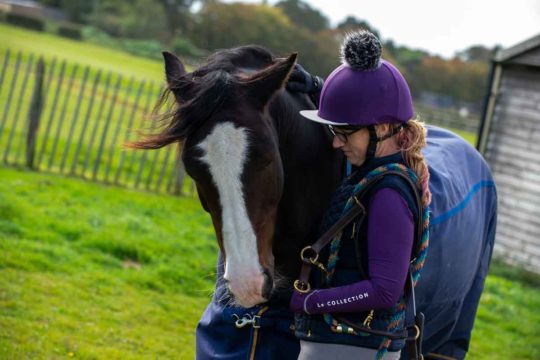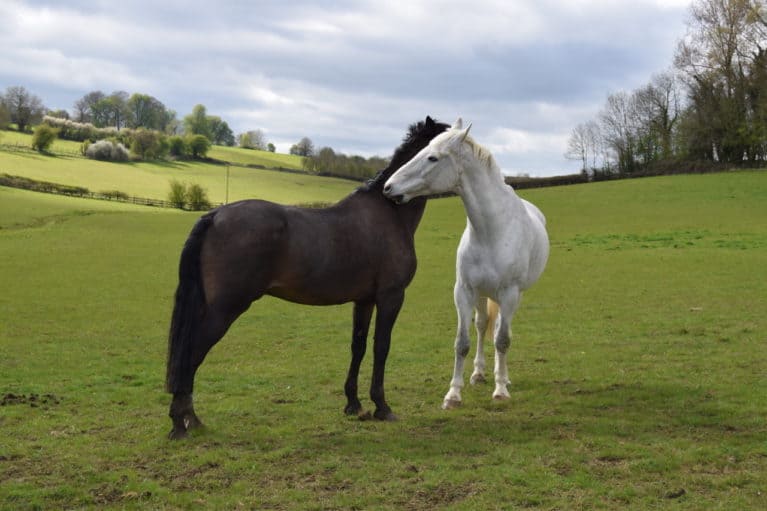
Most Read Articles

A new study has shown the link between your horse’s behaviour and his body condition – but how might they be related?
According to an exciting new study conducted by the University of Bristol and the Royal Veterinary College alongside Spillers, researchers believe that social behaviour can influence the body condition of horses living in herds. These fascinating findings could help address equine obesity, which is currently a big problem across the UK.
“Most owners and keepers know that individual horses experience different positives and negatives when living in groups,” said Clare Barfoot RNutr, Marketing and Research and Development Director at Spillers. “This is why we tend to choose field companions carefully so that a balanced and harmonious relationship can be maintained within the herd.”
The study was published in November in PeerJ. It looked into the links between social dominance, body condition and interruptions to foraging behaviours in 20 separate domestic herds. During 120 hours of observation, the horses spent on average 76.4% of their time foraging. The duration of foraging and frequency of interruptions were recorded, and each interruption was classified as vigilance, movement, social displacements, scratching or startling.
A lower body condition score was associated with greater vigilance, but this vigilance wasn’t linked to the horse’s dominance status. This indicates that horses may be more alert, whether on behalf of the group or due to anxiety, regardless of the social status within the herd. With that being said, a horse lower in the social ranking moved more while foraging and was more likely to be moved on by another horse.
“These results are novel and exciting in that they present the first behavioural evidence to confirm previous theoretical work,” said Clare. “Neither the more vigilant nor the more frequently disturbed individuals compensated for their reduction in feed intake by spending more time foraging, which probably explains the link with lower body condition. We hope that what we’ve learnt about the behaviour of individual horses when kept in groups could be included as a relevant factor when addressing health problems associated with equine obesity.”
For more information, visit spillers-feeds.com













